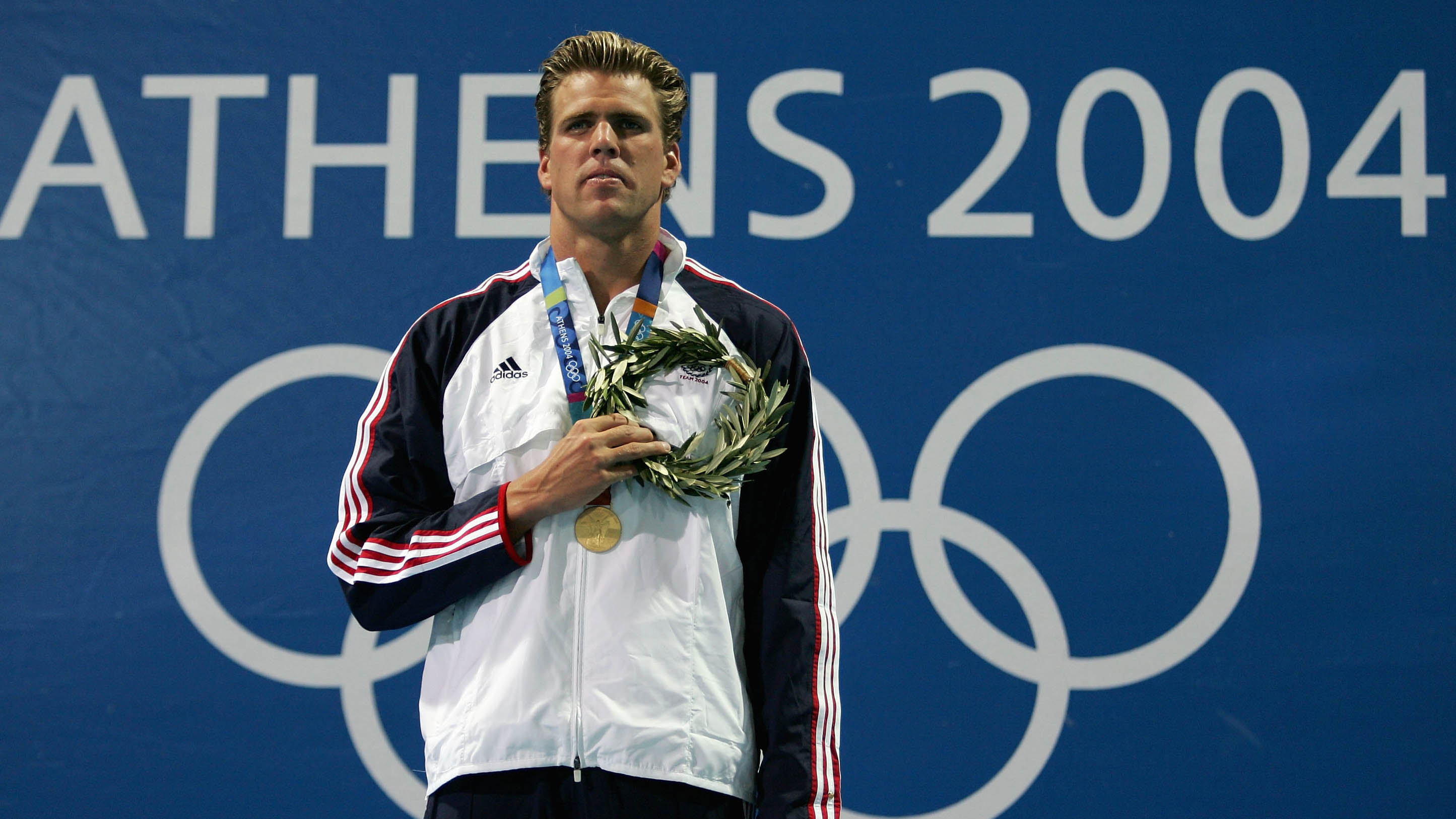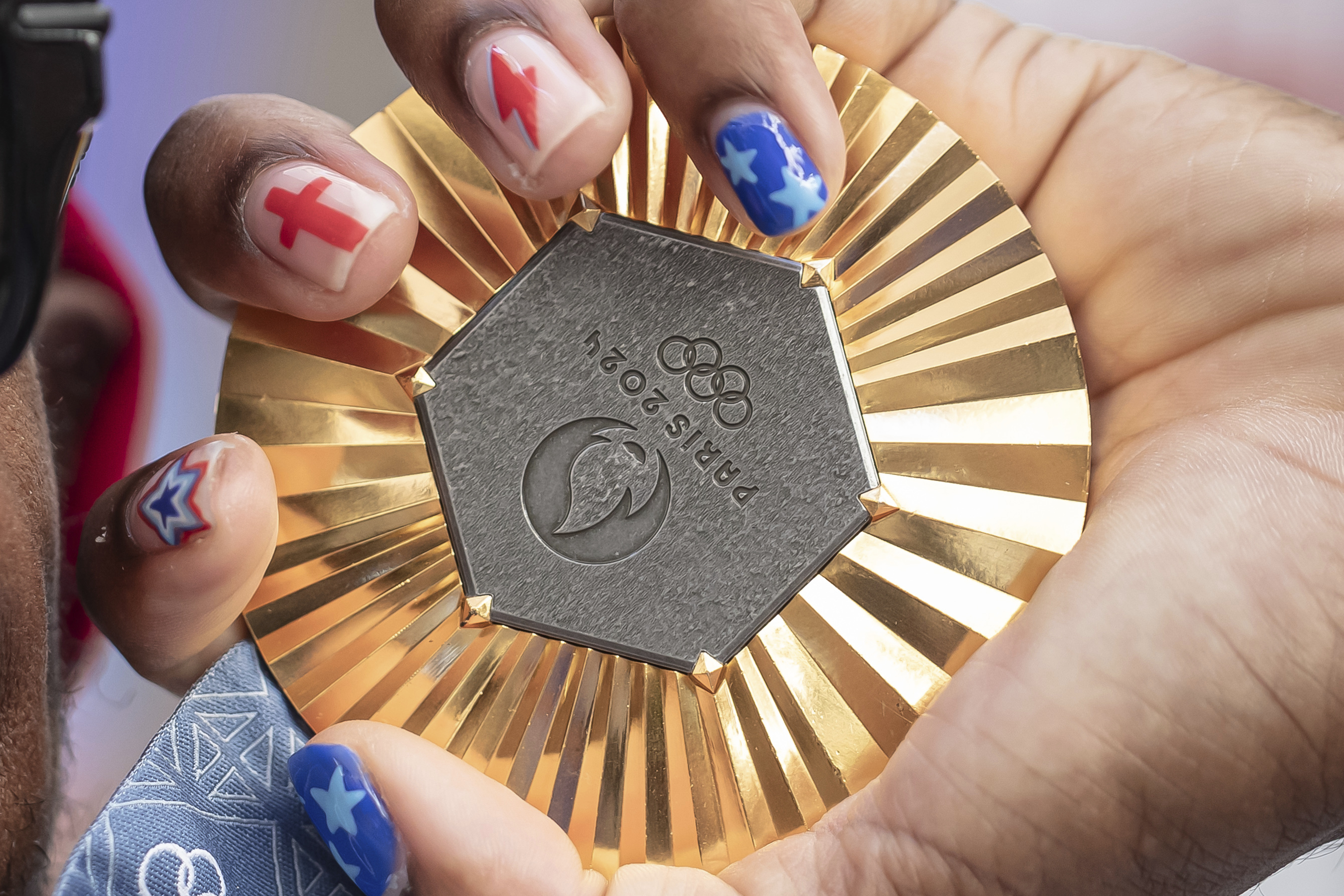The table tennis arena was a churning sea of color, with spectators waving the Chinese five stars and the French tricolor. But despite its athletes competing on the floor, one competitor's flag was nowhere to be seen: Taiwan’s.
At Paris 2024, Taiwan’s red and blue flag is banned, as is the name “Taiwan” and its anthem. The island, which is claimed by Beijing, is only one of three competitors whose flag is banned from these Olympics, the others being Russia and Belarus over the invasion of Ukraine.
The policy has seen several flashpoints at these Games.
During Sunday’s thrilling men’s doubles badminton final, in which Taiwan’s Lee Yang and Wang Chi-lin bested China’s Liang Weikeng and Wang Chang to retain their title from Tokyo, a sign reading “Let’s go Taiwan” was ripped out of a fan’s hands and torn up.

Arun Sankar / AFP via Getty Images
A green towel reading “Taiwan” was confiscated from another supporter during the match, according to news reports and witnesses. Those who were there said it was not clear who seized the items.
At another badminton match on Aug. 2, between Taiwan’s Chou Tien Chen and India’s Lakshya Sen, a spectator was removed from the venue after displaying a green sign that also said “Let’s go Taiwan,” witnesses said.
Paris 2024 Summer Olympics and Paralympics
Watch all the action from the Paris Olympic and Paralympic Games live on Peacock
That incident prompted a strong response from the Taiwanese Ministry of Foreign Affairs, which in a statement last Saturday condemned the “violent and despicable act” of forcibly removing the placard.
It added, “This violent behavior is not only utterly uncivilized but also severely violates the spirit of civilization represented by the Olympics, contravenes the rule of law, and infringes upon freedom of speech.”
Feeling out of the loop? We'll catch you up on the Chicago news you need to know. Sign up for the weekly Chicago Catch-Up newsletter.

Ann Wang / Reuters file
In response to a request for comment, the Chinese Foreign Ministry said Friday that it firmly opposed any attempts to use the Olympic Games to “manipulate the Taiwan issue.”
“The International Olympic Committee has always adhered to the one-China principle and has made clear regulations, which are universally observed by the international sports community,” the ministry said in a statement. “The Olympic Charter clearly stipulates that any political propaganda or expression at the Olympic venues is strictly prohibited.”
Geopolitics is at the heart of the dispute being played out in the sports arena.
Taiwan is a self-governing democracy that competes as “Chinese Taipei,” an attempt to participate in the Olympics without angering mainland China. The Chinese Communist Party sees it as a rogue, breakaway province, and President Xi Jinping, like other leaders before him, has not ruled out the use of force in seizing control of the island.
It’s a delicate dance, one enforced by the International Olympic Committee, which upholds the ban on Taiwanese flags in all of its venues. That included the women’s team table tennis quarterfinal between Chinese Taipei and China that NBC News attended Wednesday.

Esa Alexander-Pool/Getty Images
Asked about the incidents Monday, IOC spokesperson Mark Adams referred to a 1981 agreement in which Olympic officials and the Taiwanese government agreed to use the name and flag of Chinese Taipei after the U.S. and much of the world switched diplomatic recognition to Beijing.
The IOC’s prohibition of any displays of political messaging at Olympic venues would include banners such as the one reading “Let’s go, Taiwan,” he said.
“You can see how this can lead into, ‘If that’s allowed, then why not this? And if this is allowed, why not that?” he told a news briefing. “So that’s why the rules are quite strict, because we have to try to bring 206 national Olympic committees together in one place and it’s quite a tough ask.”
He added that the IOC’s job was “to try to build a culture of peace” and that “we need to bring everyone together and keep the temperature down in all sorts of debates and discussions.”
Taiwan has competed under several different names since 1949, when China’s Nationalist government fled to the island after being defeated by Mao Zedong’s Communists in a civil war. It has competed as the Republic of China, Formosa and, briefly in the 1960s, Taiwan. In a 2018 referendum, its citizens voted against renaming their Olympic team “Taiwan” — which some experts say was a pragmatic attempt not to incur Beijing’s ire.
Sunday’s badminton victory over the top-ranked Chinese duo — Chinese Taipei’s first and only gold medal at the Paris Games so far — was a moment of celebration for the island and its 25 million people. But for some in the crowd, the win was tainted by what happened in the stands.
“It got ruined,” said Maori Chiang, 23, who is from Taiwan but is currently studying in London. He was among the spectators for the final, and said that it “made me feel angry and upset.”
His friend Yu Tsing Lin, 25, who also lives in London, said “the ban on our flag makes no sense.”
“We are our own country; we are not part of them,” she added, referring to mainland China.
Stuck in the middle of all of this are the players.
“After we finish playing, we should be interviewed about our thoughts on the match,” said four-time Olympian Chen Szu-yu, one-half of the Chinese Taipei women’s team that lost to China at table tennis Wednesday.
“Questions about the audience should be handled by the audience or the organizers, not by us players,” she said.
The island’s badminton victory on Sunday stirred nationalist sentiment in China, where state-run broadcaster CCTV cut the feed during parts of the match and refrained from running the medal ceremony at all.
“No matter how you fight, you cannot change the fact that Taiwan has been a part of China since ancient times,” one user wrote on the social media platform Weibo. “Taiwan Independence, go to die.”
“Motherland will retake Taiwan tomorrow, okay?” said another, referring to China. “What gives Taiwan independence forces the illusion that winning a gold medal makes you revive again? I’m going to laugh my ass off.”
On a hot day this week, NBC News visited Chinese Taipei House, one of the cultural centers set up across Paris by various Olympic committees. Taiwanese people there said that while it was an honor to participate in the Games, it stung to be unable to do so under their preferred name.
“Apart from China, no one else really cares and they all think it’s very strange,” said Arial Su, 32, who is from Taiwan but works in London.
“Why can’t we represent ourselves with our own flag?”
This story first appeared on NBCNews.com. More from NBC News:




